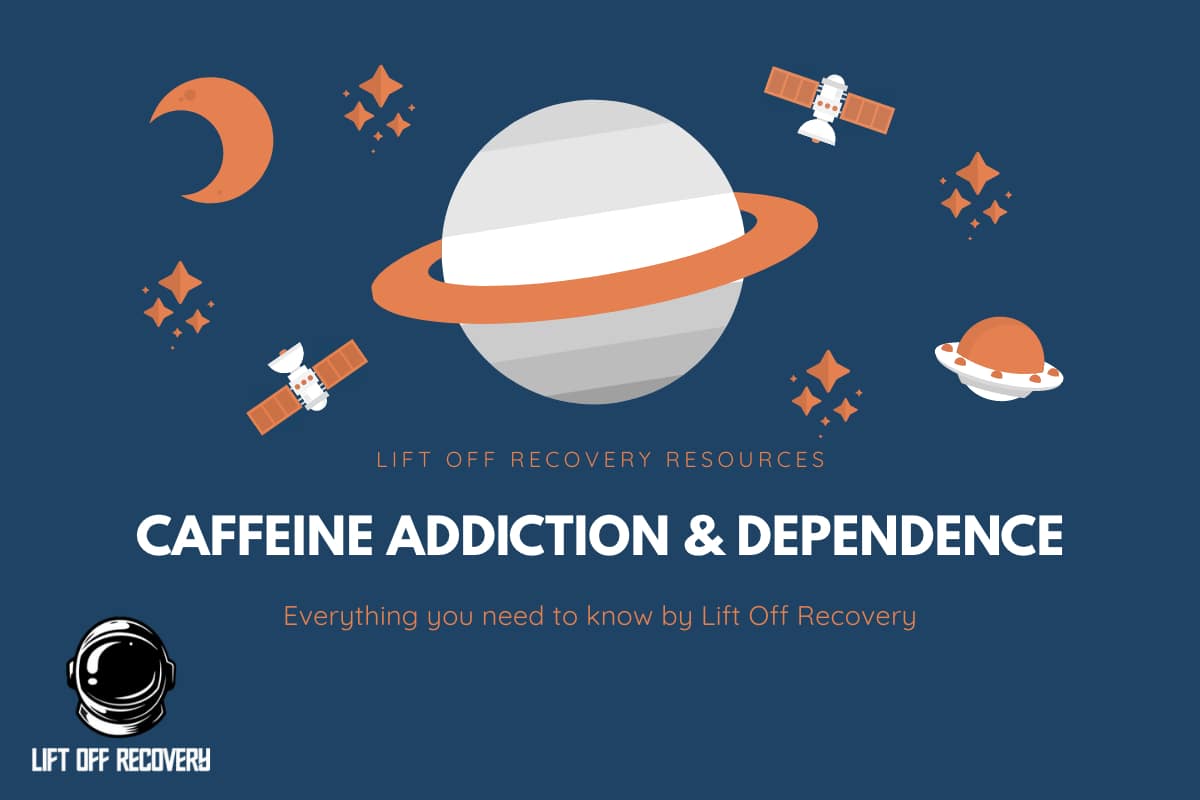Caffeine Dependence & Addiction
How drinking coffee daily can lead to America’s invisible addiction.
Table of Contents
Caffeine is the most commonly used drug in the world. About 90% of U.S adults drink caffeine every single day. It’s also the only drug that we allow children to consume, in the form of soda, fizzy drinks, and chocolate.
But you probably never even thought of caffeine as a drug, right? Most people don’t. Coffee culture, cafés, and that morning cup of joe are typical aspects of our culture. Drinking coffee has become so routine that we would never equate it with addiction.
Caffeine addiction is real, possible, and more common than you’d think. The good news is you can recover from caffeine abuse. Let’s get into the details and signs of caffeine addiction, as well as how to get help!

Who Is Most Likely To Abuse Caffeine?
According to research based on a group of high school students, there are excess risks of addiction for certain people. Researchers were able to determine who might be most affected by caffeine addiction:
- In poor health or are physically disabled
- Have chronic depression
- Have a family history of substance abuse
- Consider caffeine to be safe
Regardless of these statistics, anyone can develop a caffeine addiction. But how do you know if you have it?
Signs of Caffeine Addiction
Knowing risk percentages can be a useful method of determining if you’re in danger. But what are the actual symptoms of full-blown caffeine addiction?
You Drink More Than Four Cups Per Day
The recommended maximum amount of caffeine for adults is 400 mg. This equates to about four cups of brewed coffee or ten cans of soda.
Exceeding this amount once in a while isn’t dangerous and can easily happen, especially when drinking coffee with friends. But if you find yourself consistently consuming more than 400 mg, you might have an addiction.
You Try To Quit But Fail
Have you ever tried to ditch caffeine cold turkey? It might feel impossible to get through your day. Multiple unsuccessful attempts to quit could be a sign of addiction.
Many people try to quit coffee, specifically. They then supplement the caffeine loss with sodas, tea, and energy drinks. These beverages all have high amounts of caffeine, making the quitting attempt futile.

You Experience Negative Symptoms
Insomnia, jitters, and heart palpitations are all unpleasant side effects of caffeine overdosing. You’ll start to feel these impacts if there is more than 15 mg/L of caffeine in your blood.
You might also feel the following signs of overconsumption:
- Confusion
- Nausea
- Irritability
- Panic attacks
- Fast breathing
- High body temperature
- Dehydration
- Anxiety
- Insomnia
Although a caffeine overdose is more often linked to caffeine tablets and supplements, it’s possible with plain old coffee as well.
You Need It To Get Through The Day
If you can’t bear the thought of not having your morning coffee or your lunchtime, mid-afternoon, and post-work coffee, you might have a problem.
Your energy levels and mood might dip if there’s not enough caffeine in your system. You might experience brain fog, headaches, and confusion. Needing caffeine to get through the day means you may have become dependent on the substance.
What Is Caffeine Use Disorder?
Doctors use the Diagnostic and Statistical Manual of Mental Disorder (DSM-5) to determine whether an individual has a psychological disorder. According to the DSM-5, caffeine use disorder is a condition that needs to be studied further.
The DSM-5 did establish three criteria for diagnosing the disorder:
- A desire and unsuccessful attempts to control caffeine intake
- Continued caffeine use after experiencing negative symptoms
- Effects of caffeine withdrawals lasting longer than 24 hours
Other factors include cravings, rising tolerance, and an increasing amount of consumption. These are also prevalent in other substance abuse disorder diagnoses.
Additionally, researchers found that patients with caffeine use disorder usually suffered from:
- Poor sleep
- Substance abuse
- Depression
- Anxiety and self-medication
- Stress
- Functional impairment
This information might suggest that caffeine dependency and other psychological disorders go hand in hand. That’s why it’s crucial to seek help if you feel like your addiction has gone too far. There may be other underlying factors contributing to your caffeine abuse.
How Caffeine Affects The Body
Many people don’t understand how caffeine directly affects different processes and organs in the body. We know that it gives us energy and makes us feel alert, but what’s going on with the rest of our system?
Effects on the Brain
Did you know that chronic consumption of caffeine can change gray matter in the brain? Gray matter is part of the central nervous system. It makes up the cell bodies of nerve cells.
In one study, researchers found that consuming caffeine daily reduced the amount of gray matter in the brain. This finding is not necessarily negative, but it does show that coffee impacts our brains more than we think. The good news is that after ten days of being caffeine-free, the changes reversed.
Effects on the Stomach
Coffee can be very acidic, especially if you like it black. If you have a low tolerance or drink too much, it can aggravate heartburn or acid reflux.
It’s also a diuretic, meaning coffee flushes itself out through the liver. The result might mean a lot of bathroom trips if you consume too much. It can also cause cramping, diarrhea, nausea, and vomiting.
Central Nervous System Response
Caffeine stimulates our central nervous system. A great reason for drinking it in the morning is to get that energy boost and feel awake! But too much caffeine can cause a negative response triggering anxiety, panic, and nervousness.
But the most common issue caffeine drinkers complain about is headaches. Your brain’s blood vessels become used to caffeine, so when you stop consuming it, you might get a headache. Alternatively, if you over-consume, you’ll have the same result.
Blood Pressure
The effects of caffeine in your blood are most obvious within one or two hours of consumption. These can cause your blood pressure to spike for a short while. An increase of adrenaline or a short-term pause on hormones that widen your arteries might be the reason.
It’s generally not dangerous but if you do have heart problems or high blood pressure, you’ll need to cut back. If you have these issues, always check with your doctor if caffeine is safe for you to drink.
Skeletal System
A moderate amount of caffeine won’t affect your skeletal system. But consuming large amounts can interfere with calcium absorption. If you use caffeine supplements or powdered versions, it can be a big factor in this interference.
The main problem here is that lack of calcium can cause bone thinning, also known as osteoporosis. As you age, this will result in many future health problems such as easily breakable bones and strength loss.
Other lesser effects of overconsumption include muscle twitches and aches. These can interfere with your exercise routine and lead you to develop a dependence on muscle relaxers.
Who Should Avoid Caffeine?

- Are pregnant or breastfeeding
- Have insomnia or sleep disorders
- Experience chronic headaches, migraines, or auras
- Suffer from psychological disorders like anxiety or depression
- Often experience acid reflux or have a GERD diagnosis
- Have heart problems or high blood pressure
- Regularly take stimulants as a medication for health problems
Energy Substitutes
Caffeine Withdrawal Symptoms
There’s a common denominator among people who have an emotional relapse. That denominator is poor self-care.
This skill emphasizes the importance of finding a high-quality transitional housing program. This kind of program will help you recognize the importance of self-care. It will also help you see what self-care looks like every day.
In a high-quality transitional housing program, you’ll learn and practice basic self-care. This practice may include getting sufficient sleep, eating right, and using the right coping strategies to overcome depression. You’ll also learn how to overcome negative emotions and thoughts.
Time Management
- Frequent headaches
- Fatigue and low energy levels
- Lethargy
- Difficulty with focus and concentration
- Decreased motivation
- Irritability and mood swings
- Intense distress or sadness
- Muscle aches and body pains
Getting Help
- Remove shameful feelings
- Decrease loneliness and isolation
- Encourage bonding with others
- Allow patients to see various stages of recovery
- Keep people accountable
Honesty
In recovery, it’s critical that you learn to always practice honesty with yourself and others. Addiction is a habit that requires lying by default.
Often, you must lie to acquire your drug of choice. You must also lie when you’re using it. Furthermore, you must lie to hide the effects that drugs or alcohol have on you.
All these lies create a horrible cycle. The more you lie, the less you like who you’ve become.
With this point in mind, it’s critical to remain vigorously honest when you’re in recovery. This practice is one of the most powerful skills you must immerse yourself in fully for successful recovery during drug addiction treatment.
Understanding Life Skills
These skills are the tools you’ll need to navigate the challenges of everyday life. For some people, they come naturally.
For others, however, they’re exceedingly hard to learn. Yet, anybody can learn these important life skills with training and practice.
In some instances, it helps to change your perspective when learning new life skills. You could think of learning these skills as taking on a new hobby. In other words, you could think of it as if you were learning a new interest like music.

Why Life Skills Are So Important
Not everyone has received the same training and foundation in life skills. No matter your age, however, you can identify what you know with a little help. You can also process how you feel about what you need to learn intelligently.
As you learn new life skills, you’ll discover how to adopt healthy patterns of behavior. You’ll also enhance your decision-making. Most importantly, you’ll improve your self-image and self-esteem.
With the right life skills, you can reduce special health risks related to your addiction. You’ll increase healthy behaviors.
Furthermore, you’ll learn how to protect yourself from self-harm. You’ll also learn how to reduce any tendencies you might have for violent behavior.
The Dimensions of Recovery
Before you start to develop new skills, you must learn the dimensions of life in recovery. These dimensions will serve as your foundation for building new skills. They’ll help you create an environment and lifestyle that supports your sobriety.
The Substance Abuse and Mental Health Services Administration (SAMHSA) outlines four major dimensions that support your life in recovery.
Community
In recovery, you need social support. This support is the key to maintaining a life of sober living.
Everyone in recovery should build and maintain healthy relationships. These relationships will provide critical support when you need it the most.
They’ll supply you with the love that everyone needs. Community ties can also help you to find long-lasting friendships.
Health
During your recovery, you must also make the right decisions about your health. These decisions must support your life in recovery.
For example, you should refrain from all drug and alcohol use. You must also maintain a proper diet. Likewise, you should develop a healthy exercise and meditation routine.
You must also learn how to properly manage common emotional issues. These issues might include anxiety, depression, and stress.
Home
There’s something everyone should have that’s especially important to those who are in recovery. You must have a safe, stable place to live.
You need a place where you can feel secure. This place must allow you to share and live out your beliefs.
In other words, you must feel supported where you live. At all times, you should feel safe and comfortable.
Purpose
As a person in recovery, it’s essential for you to participate in meaningful activities. What’s more, you must participate in these activities every day.
In the beginning, you may need to volunteer for activities to ensure that you’re doing something productive. Eventually, however, you can turn your energies toward going to work. In the meantime, you might attend group and creative activities.
It’s important for you to have the independence and resources to serve as an active member of society. These benefits are essential for a purposeful and meaningful life.
Planning For The Future
For many people, there are a few things that mean the most when they’re in recovery. Of course, sobriety is the top priority.
Next, a good job has considerable meaning to someone who’s recovering from addictions. Positive relationships are also vitally important for someone who’s trying to improve their life.
In general, a life of achievement and fulfillment is what means the most to people who are in recovery.
To fulfill this need, some individuals might pursue higher learning. Others may make an effort to reunify with family members. No matter what it takes for you to feel fulfilled in life, however, remember it’s always vital for you to maintain your emotional health.
Ditch Your Caffeine Addiction
While quitting your caffeine addiction can be overwhelming and difficult, but you don’t have to do it alone. Finding professional help, whether in the form of a support group or therapist, can make the process easier.
Once you break free from your addiction, you’ll start to experience the benefits of a caffeine-free lifestyle. Naturally stable energy levels, fewer headaches, and deeper sleep! You’ll find it much easier to make it through your day.
If you’re looking for a community or treatment options in the Anaheim area, Lift Off Recovery can help. Contact us today to schedule a consultation and discuss your options. We’re here to get you to a better place!
FILL THE FORM BELOW
The Journey Begins
CONTACT LIFT OFF RECOVERY TODAY FOR DETOX AND ADDICTION TREATMENT IN ORANGE COUNTY, CALIFORNIA!
Take the first step and contact us today. Our admissions specialists are ready to help you get the care you need. We can help you figure out how to pay for treatment and what level of care is right for you.
- Insurance Accepted
- Friendly Staff
- Years of Experience
